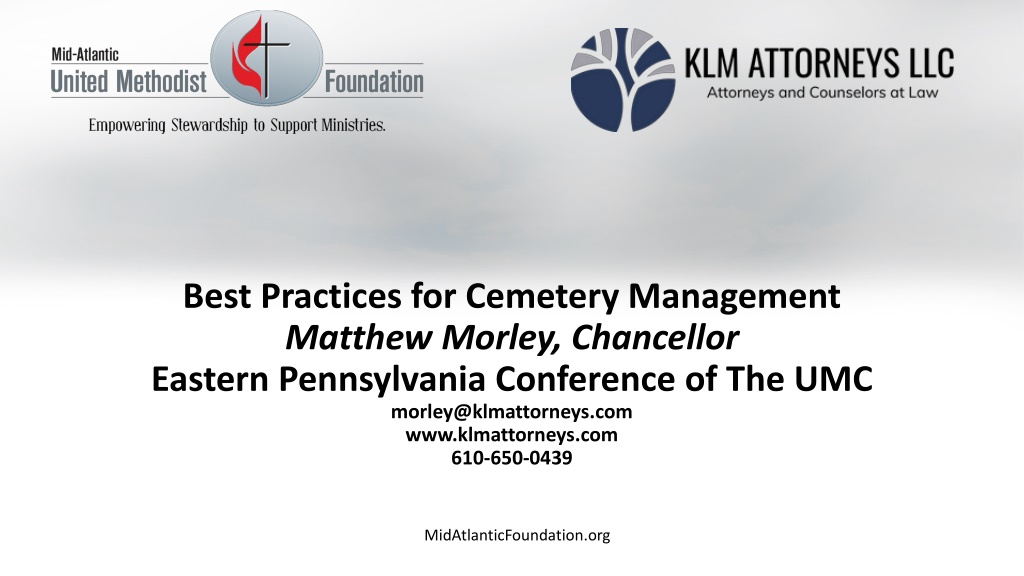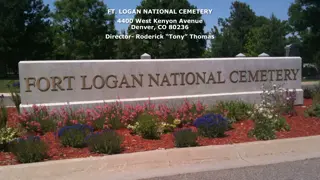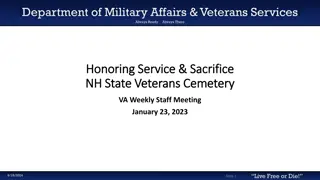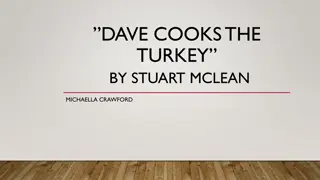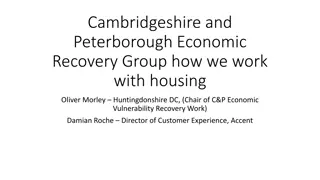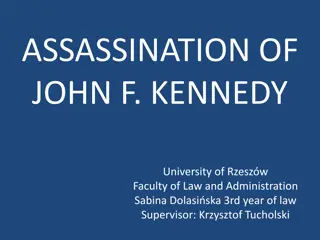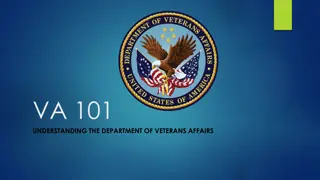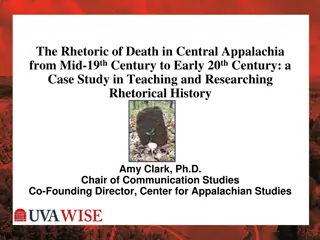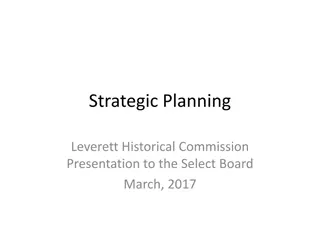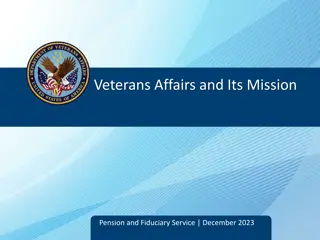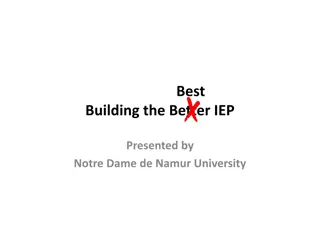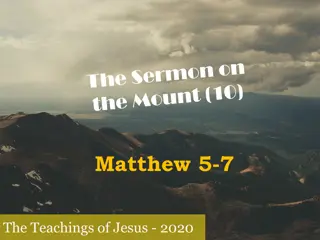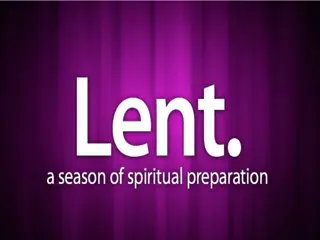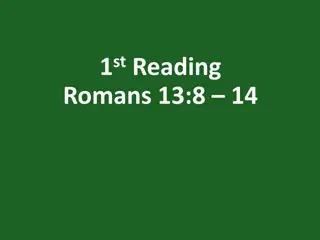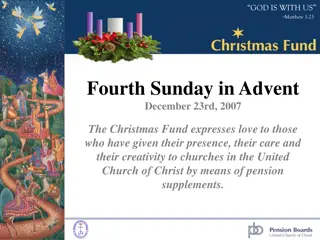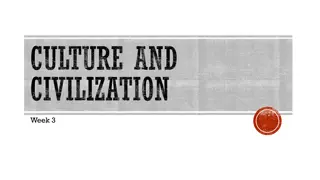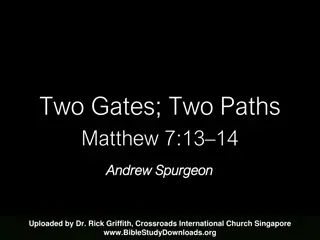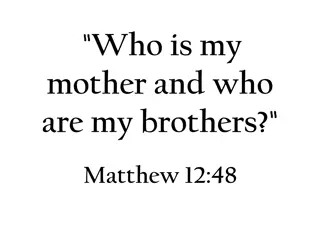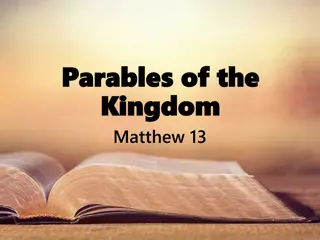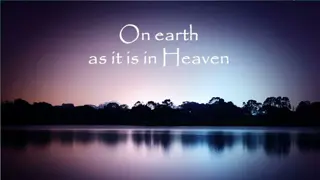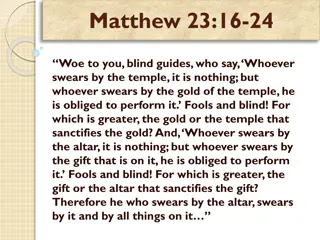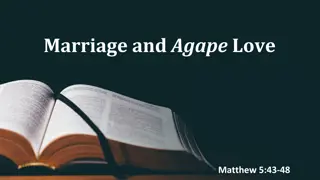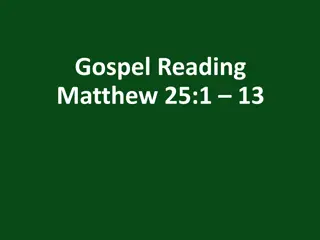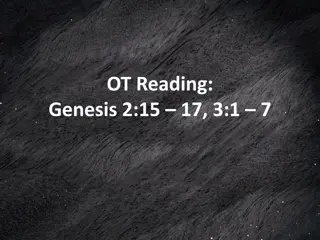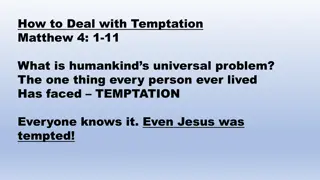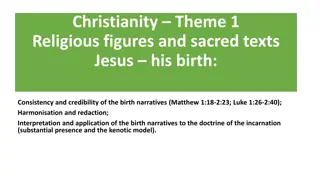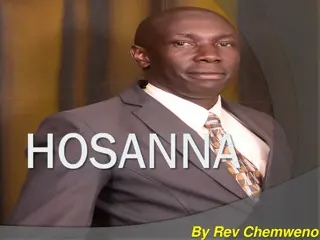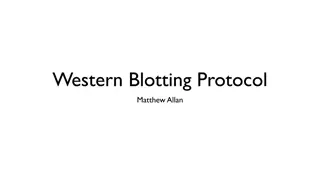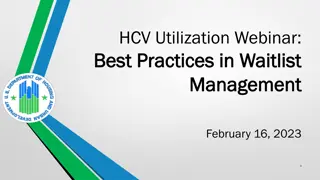Best Practices for Cemetery Management by Matthew Morley
Valuable insights and advice on cemetery management from Matthew Morley, Chancellor of the Eastern Pennsylvania Conference of The UMC. Topics covered include cemetery constituencies, general principles, ministry to the deceased, types of burials, columbarium, and policies to adopt for effective cemetery management.
Download Presentation

Please find below an Image/Link to download the presentation.
The content on the website is provided AS IS for your information and personal use only. It may not be sold, licensed, or shared on other websites without obtaining consent from the author. Download presentation by click this link. If you encounter any issues during the download, it is possible that the publisher has removed the file from their server.
E N D
Presentation Transcript
Best Practices for Cemetery Management Matthew Morley, Chancellor Eastern Pennsylvania Conference of The UMC morley@klmattorneys.com www.klmattorneys.com 610-650-0439 MidAtlanticFoundation.org
Attorney at KLM Attorneys LLC Chancellor of Eastern PA Conference of the UMC Who am I? Treasurer of Grove Methodist Cemetery, Inc. in West Chester, PA
Cemetery Constituencies: Whom do we serve? The deceased The families of the deceased The Church The community, generally
General Principles / Thoughts These are largely volunteer boards; know your limits! Have a plan for when all graves are filled. Preserve knowledge don t just assume that your current board will be there forever! Play up the UMC connection!
Ministry to the Deceased Outline: Ministry to the Living Legal Considerations
Types of Burials Traditional Inurnments Scattering of Ashes Green Burials?
Discussion: OBCs and Green Burials
Burials Do not try to do yourself! Ask for help/referrals Funeral Directors are a great resource! Find an established monument company or excavation company to handle
Columbarium Cremation is becoming more and more popular Low maintenance Accentuates existing landscaping Uses less space than traditional burials and plots
What Policies Should Cemetery Adopt? At a minimum: Burial and General Access Policies Price Policy Monument Policies PUT THEM IN WRITING!
Burial / Access Policies Embalming OBC Hours of Burials How much notice required? Visiting Hours Plantings
Price Policy / Charges Purchase of Plot/Grave NOTE: This is not a normal deed!! Burial Cost Internment Inurnment Weekend/Holiday rates? Perpetual care Foundation charges? Special rates for indigent/ infant burials? Payment Plans?
Monuments Policy Who installs the foundations? Standing v. Flat Taste/Respect to other graves Safety ISSUE: Fallen Monuments. Need to have a formal policy If not, families will assume it s your responsibility to maintain and correct if it falls.
Management Should be addressed in Bylaws, if incorporated, or Church trustee policy if not incorporated. Who is the day-to-day contact? Church office --- separate employee? Complaints Coordinating funerals with funeral directors/ excavation / monument company Records keeping? Financial Records/ Who is treasurer?
Grounds Maintenance This is not an easy job. Mowing in summer; plowing/salting in winter trimming around monuments without damaging them Caring for trees/bushes Remove Holiday/Burial Floral arrangements Reseeding after burials Emptying trash receptacles, if applicable Most cemeteries of any size will likely need professional assistance
Records - NonFinancial Need to notify county health officials of internments work with funeral directors on this. They are very familiar with the paperwork. Two Types of Records: Plot ownership Plot occupancy Need detail records: Maps plus cemetery record book MS Excel Commercial Software
Financial Planning Income Lot Sales Burials Endowment income Fundraising Expenses Utilities Insurance Groundskeeping Excavation Costs How will cemetery support itself when all graves are filled?
Need to involve the public in the Cemetery! Make it a public space and create a group that can support the cemetery. Hold services / remembrances in the cemetery This will: Help create more interest in the cemetery now Help cemetery establish a group to help with fundraising and future cemetery needs.
Cemetery Taxation Generally, the following are exempt from property taxes: Burial Ground that is ready to be sold and used for internments Cemetery Offices Areas used for equipment storage The following is taxable: Caretaker s residence Land that is not ready to be sold and used for internments If you operate a funeral home or sell caskets, monuments, etc., may be come taxable BUT, enforcement varies county by county.
Incorporation Cons Human capital Need enough interested people to fill out board Separate treasurer Can cause an undesirable separation between cemetery and church Some cost redundancies Extra paperwork Pros Legal protection of directors Legal separation / protection from the Church Frees up church leadership to focus on other ministries If done right, ensures that cemetery can continue even if church is closed or merged
Incorporation Process: Highlights DS calls charge conference to authorize incorporation and appoint incorporators / first directors. Adoption of Articles and Bylaws Get EIN from IRS Get 501(c) recognition UMC Group Ruling or 1024 Submit Articles to Department of State Deed Property to new corporate entity Establish an endowment fund
Resources PA Department of State Articles of Incorporation Form https://www.dos.pa.gov/BusinessCharities/Business/RegistrationForms/Documents/RegForms/15- 1306%20Art%20of%20Incorp%20For%20Profit.pdf Georgia UM Foundation publication https://www.gumf.org/cemetery-association/ 26 CFR 1.501(c)(13)-1 - Cemetery companies and crematoria https://www.law.cornell.edu/cfr/text/26/1.501(c)(13)-1
A note on perpetual care 9 Pa.C.S. 301 et seq requires 15% of gross funds arising from (1) lot sales, (2) construction of crypts in a mausoleum, or (3) niches in a mausoleum to be put in a permanent care fund. Permanent care fund may only be used for the perpetual care, maintenance and preservation of the lots and grounds, and the repair and renewal of the buildings and property connected with and forming a part of the cemetery. Churches and church cemetery corporations should comply with this.
